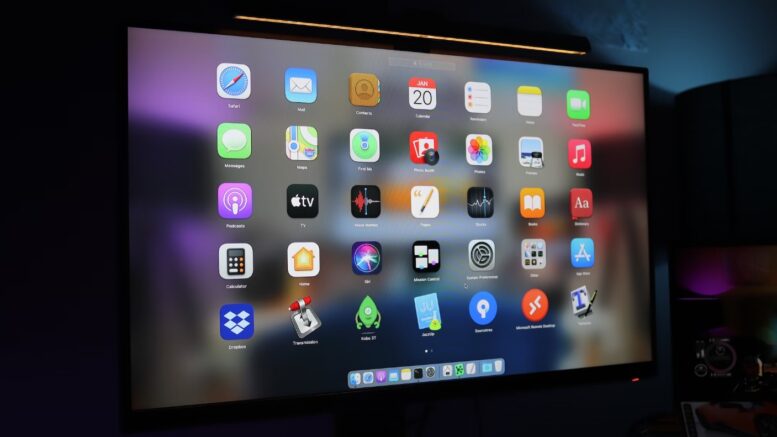The demand for mental health practice management software is increasing gradually. Currently poised at $2,014.10, the mental health software market is expected to reach a whopping $5,576.88 by 2028 at a CAGR of 18.50%. And why not?
Such software can simplify the treatment process, from booking appointments to billing and insurance. But with so many options available, how do you choose the right software?
There are a few things to consider when looking for mental health practice management software. These include ease of use, security level, software features, how helpful it can be for your patients, and cost. You can also arrange a demo and try the software before purchasing one.
Ease of Use
You need more time to figure out how to use the software, so finding an intuitive and easy solution is crucial. Ease of use is a significant factor in choosing a mental health practice management software. Are staff members able to get started with the program quickly? Do they find it easy to navigate around the system? How long did it take them to feel comfortable navigating through all its features?
The most important thing here is that everyone on your team feels confident using the software, regardless of their tech experience or familiarity with certain cloud-based technologies.
In fact, you must also find out how often the developers are doing usability testing on the software. According to a study, 31% of businesses conduct usability testing quarterly, 20% do so monthly, 11% do so weekly, and 11% do it biweekly.
If the developers run frequent tests, they will continue to ensure ease of use. Hence, you can use such developers’ mental health practice management software.
Security Level
The security of your data is a significant concern for mental health practices. According to the HIPAA journal, there were 4,419 healthcare data breaches, with more than 500 records breached between 2001 and 2021. These branches resulted in leaking over 314 million data records of patients.
Hence, you want to ensure that your information is safe and secure, especially since it can include sensitive personal information about patients. That’s why you should research the different levels of protection offered by each practice management software program you’re considering.
There are many different levels of security available in practice management software packages, basic, standard, advanced, and premier. The more advanced levels may offer encryption, two-factor authentication, or multi-level user access controls. The most basic level generally provides little more than password protection.
To ensure the highest level of protection possible for your client’s sensitive information, consider using cloud-based systems that employ advanced encryption technologies. These technologies can be Triple DES or AES 256 with SSL/TLS encryption certificates and password-protected logins through one or more servers located in separate geographic locations.
Features of the Software
You want to choose software that has features that will benefit your practice. The software’s features should be easy to use and intuitive so that you can spend less time learning and more time getting work done. It’s also important to consider whether or not they are included with your subscription or if they will cost extra money each month.

You would want many features in the mental health practice management software. To begin with, you would want an automated appointment booking feature. This will allow the patients to use self-service to book appointments with you from the available slots. Once an appointment is booked, you will receive an alert.
Another great feature worth mentioning is electronic health records (EHR). Most people expect healthcare professionals like psychologists or psychiatrists to have a streamlined way to input information about themselves into an electronic database rather than having paper copies. Hence, EHR becomes vital.
Some other notable features to look for include:
- Document management
- Billing and Insurance
- Third-party integrations
- Telehealth capabilities
How Helpful Can It Be for Your Patients
Your patients will be able to benefit from the software in several ways. For example, if they’re lucky enough to book an appointment online, they can do so easily on your website or mobile app. This is convenient because it saves them time and effort by allowing them to book their appointments at their convenience.
It also helps increase productivity by ensuring all records are up-to-date, whether automatically updating patient profiles after each visit or sending reminders about upcoming visits via text message. This way, there won’t be any mistakes when new information comes across regarding insurance coverage changes, due diligence requirements, etcetera.
Customers seek good experiences when getting treatment from you. Hence, researching the benefits that the software can offer them is crucial. For example, a recent study states that video calling is essential for a good customer experience. According to the study, 60% of healthcare professionals cited that video calling is effective in meeting customer expectations.
Cost
While the initial investment for your software will be a one-time payment, you’ll also have to consider ongoing costs. For example, if you can’t hire someone who knows how to use the program and train them yourself, you’ll be looking at hiring new employees or contracting out the needed training.
Suppose your practice uses its software and has no need for an outside company’s support. In that case, there will still be costs associated with using the program in terms of additional features or upgrades that only exist within a certain software version that may not be available as part of an older version.
Software costs can vary widely. However, most mental health practice management software price starts at $40 a month. This is the base subscription price. Then there are other additional costs, such as maintenance, training, etc.
Support
Ensure that support is available 24/7 in multiple languages, including English, Spanish and Chinese. When you buy a practice management software program, you want to know that someone can help you with questions and problems as they arise. You don’t want to be left in the dark, mainly if there are issues with your staff or patients during business hours.
Vendors and partners should provide support via phone, email, and live chat options. They also offer training services for users new to the platform. Suppose you prefer face-to-face assistance over other channels. In that case, many vendors also provide on-site support at an additional cost (though this is usually only available through specific third parties). Free training resources can also be found online, simply search “[name of software] tutorial videos” on YouTube.
Conclusion
There are many factors to consider when choosing a mental health practice management software, and if you’re starting or don’t have a lot of experience with these systems, it can be tricky to know where to start. That’s why it’s important to think about your needs and what type of software will best serve them and then go ahead and arrange a demo.
